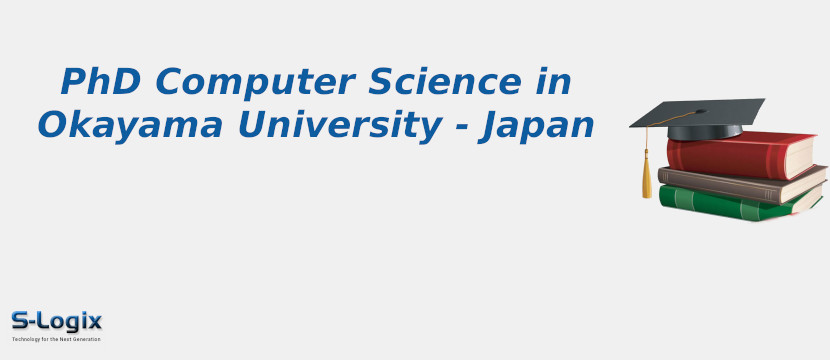Okayama University is a leading research institution based in Okayama, Japan and was chartered in 1870. Okayama University has a long history of academic greatness and is widely appreciated for its innovative research in various fields.
Okayama University has a powerful focus on transdisciplinary research, which permits researchers to work over traditional academic boundaries and implement new insights and innovations. Some of the significant research areas at Okayama University include life sciences, nanotechnology, environmental science, and materials science.
Okayama University is obligated to improve international collaboration and exchange and has partnerships with numerous institutions worldwide. Okayama University imparts an enriching educational environment, high-quality education and research facilities to solve real-time problems of society.
Address: 1 Chome-1-1 Tsushimanaka, Kita Ward, Okayama, 700-8530, Japan
Phone: +81 86-252-1111
Email: dde7046@adm.okayama-u.ac.jp
Website: http://www.okayama-u.ac.jp/
Undergraduate Programs:
• Bachelor of Engineering in Information Science and Engineering
• Bachelor of Engineering in Computer Science and Engineering
• Bachelor of Science in Information Science and Engineering
• Bachelor of Science in Computer Science and Engineering
Graduate Programs:
• Master of Engineering in Information Science and Engineering
• Master of Engineering in Computer Science and Engineering
• Master of Science in Information Science and Engineering
• Master of Science in Computer Science and Engineering
• Doctor of Engineering in Information Science and Engineering
• Doctor of Engineering in Computer Science and Engineering
• Doctor of Science in Information Science and Engineering
• Doctor of Science in Computer Science and Engineering
Okayama University in Japan has a powerful research focus on computer science particularly in areas such as
• Combinatorial Algorithm
• System Software
• Computer Architecture
• Secure and Reliable Software
• Group Collaboration
• Computer Vision
• Computational Linguistics
• Web Informatics
• Multimedia Information System
• Information and Mathematical Engineering
• Software Measurement and Analytics
• Human-Computer Interaction
Combinatorial Algorithm;
• Algorithms and Computational Complexity on Graphs
• The Eulerian Recurrent Lengths of Graphs
• Primality Testing Based on Pseudosquares
• Design of Expanding Graphs
System Software;
• Tender Operating System
• AnT Operating System
• Mechanism for Regulating Program Execution Speed
• Mechanism of Exchanging Parts of Programs During Execution
• Virtual Machine Security
Computer Architecture;
• Hardware Design Automation
• Dynamically Reconfigurable Hardware
• High-Performance Processor Technology
• Parallel Programming Languages and Systems
Secure and Reliable Software;
• Operating System
• System Software
• System Security
• Cyber Security
Group Collaboration;
• Groupware Systems
• Event Prediction
• DevOps for System Software
Computer Vision;
• Face Recognition/Modelling
• Real-Time Object Tracking on Optical/Depth Images
• Photometric Analysis for 3D Shape Reconstruction from Images
Computational Linguistics;
• Construction of Predicate-Argument Structure Thesaurus
• Analysis of Semantic Roles and Frames
• Terminology
• Essay Scoring System
Web Informatics;
• Web Information Retrieval
• Web Mining
• Digital Library
• Image Processing Algorithms
• Combinatorial Optimization Using Neural Networks
Multimedia Information System;
• Spatial Query Processing
• Research on Selective Contents Broadcasting
• Research on P2P Streaming Systems
• Research on Division Based Broadcasting Systems for Webcast
• Behavior Analysis with Multi-Sensor Networks
Information and Mathematical Engineering;
• Decentralized Computation in Multi-Agent Networks
• Efficient Computational Methods for Nonnegative Matrix Factorization
• Analysis and Design of Complex Networks
• Efficient Learning Algorithms for Support Vector Machines
• Stability Analysis of Nonlinear Dynamical Systems Related to Neural Networks
Software Measurement and Analytics;
• Software Quality Analysis
• Mining Software Repositories
• Artificial Intelligence in Software Engineering
• Software Security and Protection
• Human Behavior Analysis
Human-Computer Interaction;
• Natural User Interface
• Rehabilitation System for Aphasic Persons
• Information Visualization
• Combinatorial Algorithm Laboratory
• System Software Laboratory
• Computer Architecture Laboratory
• Secure and Reliable Software Laboratory
• Group Collaboration Laboratory
• Computer Vision Laboratory
• Computational Linguistics Laboratory
• Web Informatics Laboratory
• Multimedia Information System Laboratory
• Information and Mathematical Engineering Laboratory
• Software Measurement and Analytics Laboratory
• Human-Computer Interaction Laboratory
• JASSO /Monbukagakusho Honors Scholarship for Privately-Financed International Students
• The Kazuko Watanabe Memorial Scholarship Foundation of Notre Dame
• JEES・Docomo Int-l Student Scholarship
• Mitsubishi Corporation International Student Scholarship
• JEES・Ishibashi Foundation Scholarship
• Yasuda Foundation Scholarship
• The Iwatani International Scholarship
• Japan-China Friendship Association Ariake Japan Scholarship
• Nitori International Scholarship
• ITO Foundation for International Education Exchange Scholarships
• Taiwan Interchange Association Scholarship
• Fujii International Scholarship
• Heiwa Nakajima Foundation Scholarship
• Rotary Yoneyama Memorial Foundation Scholarship
• Sato Yo International Scholarship Foundation Scholarship
• Seiho Scholarship
• Hashiya Scholarship
• The Asian Foundation for International Scholarship
• Interchange Kawaguchi Shizu Memorial Scholarship
• SGH Foundation Scholarship
• Okayama University Special Scholarship for International Students
• JICA Scholarship for Overseas Students
• Japan-China Sasakawa Medical Fellowship
• Japan-Korea Sasakawa Medical Fellowship
• Mitsubishi Corporation International Scholarship Foundation
• Rotary Yoneyama Memorial Foundation Scholarship
To apply for a Ph.D. program in computer science at Okayama University in Japan, applicants need to fulfill the following admission requirements:
• Applicants must have a master-s degree in computer science or a related field from an accredited university
• Applicants should demonstrate proficiency in English by providing scores from one of the following tests: TOEFL, IELTS, or TOEIC
• Applicants should submit a research proposal detailing their research interests and objectives.
• Applicants should provide two or three letters of recommendation from academic or professional references
• Applicants should submit transcripts from all prior academic institutions attended
